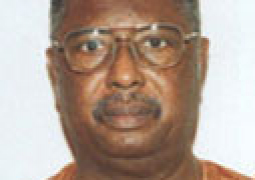This World Press Freedom Day, whose theme is Freedom of Information, offers us an occasion to remember the importance of our right to know.
Freedom of Information is the principle that organisations and governments have a duty to share or provide ready access to information they hold, to anyone who wants it, based on the public's right to be informed.
The right to know is central for upholding other basic rights, for furthering transparency, justice and development. Hand-in-hand with the complementary notion of freedom of expression, it underpins democracy.
We may not consciously exercise our right to know. But each time we pick up a newspaper, turn on the TV or radio news, or go on the Internet, the quality of what we see or hear depends on these media having access to accurate and up to date information.
Obstacles in the way of our right to know take many forms, from a lack of resources and inadequate infrastructure to deliberate obstruction.
Far too many journalists exercise their profession in an environment where restrictions on information are the norm, where dealing with pressure, harassment intimidation or even physical assault are all in a day's work.
Last year UNESCO condemned the killing of 77 journalists. For the most part these were not war casualties but local reporters covering local stories.
I invite all those commemorating World Press Freedom Day around the globe to observe a minute of silence: to remember those whom it is too late to help; to honour the journalists who paid with their lives for our right to know.
But today let us also acknowledge the significant advances that have been made.
More and more countries around the world are adopting freedom of information legislation. This makes it easier to scrutinize government actions, and it reinforces public accountability.
Meanwhile faster and cheaper technology means that more people in the world have ready access to information from outside their immediate environment than ever before.
Now is the time for us to capitalise on these advances, by strengthening institutions, by providing the necessary training for information professionals, by fostering greater open-ness within our public sectors and greater awareness among the public.
I call on governments, civil society, the news media and individuals everywhere to join forces with UNESCO in promoting Freedom of Information all over the world.
Read Other Articles In Article (Archive)
Turo Darboe continues road rehabilitation in Fajikunda South
May 6, 2014, 9:33 AM


